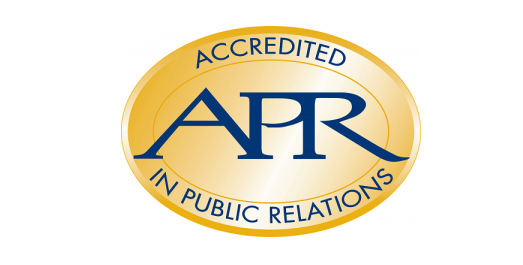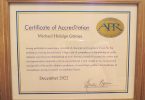“If I knew then what I know now,” the old saying goes. Life is like that in all respects, sometimes more than others. There’s always much to learn, so much to do and so little time to do it. Yet personal motivation usually leads one on a path toward self-improvement because, after all, we all are lifelong learners. And we are lifelong teachers. That teaching-learning dynamic is the substance of becoming Accredited in Public Relations (APR) through PRSA.
As Edward Bernays used to argue, public relations is so integral to the business of organizations, the welfare of people and the functioning of a democracy that accreditation or licensure ought to be required of those professionals. Although such credentials are not compulsory, the fact that so many people have chosen voluntarily to pursue and attain APR is a great testimony to the integrity of the PR profession. By simple analogy, as CPA is to accounting or passing a state’s bar exam is to law, APR is to public relations.
As I reflect on my 32-year career, half of it was in industry and the other half in academia. In both arenas I was learning and teaching, especially the latter as I moved into higher positions of authority and then (of course) as a professor of public relations. (I earned my doctorate over several years while working full time.)
When I think back on my career, I could have (and should have) pursued my APR sooner than I did in 2007 because I had amassed all the right knowledge, skills, abilities and experiences that are required to apply for the credential. And this point is critical: Pursuing and obtaining the APR credential is and must be a rigorous endeavor.
“Anything that’s worthwhile cannot be done without sacrifice,” is another old saying that applies here. The biggest deal about pursuing APR is that it takes time, effort and smarts. The most important of the three is time, so that you can have everything you know and are coming to know sink in and be retained for the long term.
And the good news is that you’ve been working in public relations long enough — teaching and learning (i.e., the “smarts”) — that the connections you make between old and new knowledge should be easier to make and longer lasting than if you weren’t so experienced.
More good news is that there are great resources. The education/study program for APR is very helpful, and I’d suggest you not rely on it alone. You should obtain and study one or more of the books about PR that PRSA recommends on its “bookshelf.” There’s also a study guide and other great resources, which you’ll see on the APR web page. Once you apply, keep going!
Being Accredited in Public Relations and living up to its expectations is a matter of actively “enhancing the profession,” as the PRSA Code of Ethics says. Earning your APR is proving your mettle and showing you have “the right stuff.” Practicing the art and science of PR after having secured your APR is demonstrating your expertise and competence with greater authority. Earning your APR definitively says you are a consummate professional and that you are continuously working, learning, teaching and leading in a vital profession that matters on so many levels. APR truly matters to you and the PR profession.
For more information about the Accreditation in Public Relations process, visit www.praccreditation.org
Peter M. Smudde, Ph.D., APR, is professor and associate executive director at Illinois State University in Normal, Ill.








Pete, can you please attend our PRSA chapter meeting tonight and discuss this message? Thanks.